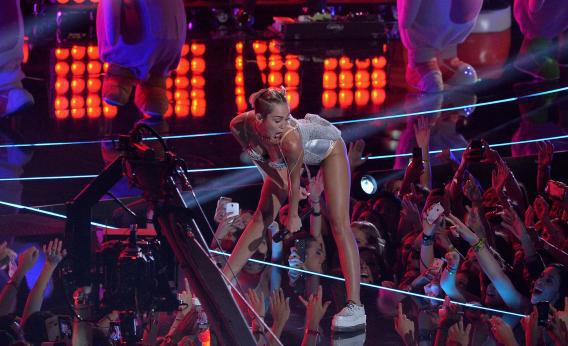The Internet is in an uproar today over the reported news that twerk and selfie (not to mention other slang like srsly, vom, and TL;DR), have been added to the Oxford English Dictionary. Everywhere from BBC News to Reuters to NBC News to the Chicago Tribune has reported this story, prompting outraged obituaries everywhere decrying the very end of the English language.
There’s only one problem: This story is 100 percent wrong. Twerk and selfie are not being added to the Oxford English Dictionary, and they never were.
The false reports stem from a failure to make the crucial distinction between the Oxford English Dictionary and Oxford Dictionaries Online. You might not fault anybody for missing the difference of one or two words, but Oxford University Press, which oversees them both, could not have been more clear about this in their announcement of the additions:
It is important to note that the new words mentioned above have been added to Oxford Dictionaries Online, not the Oxford English Dictionary. Why is this?
• The dictionary content in ODO focuses on current English and includes modern meanings and uses of words
• The OED, on the other hand, is a historical dictionary and it forms a record of all the core words and meanings in English over more than 1,000 years, from Old English to the present day, including many obsolete and historical terms. Words are never removed from the OED.
To emphasize, the ODO focuses on contemporary English and is updated more quickly, while it generally takes longer for words to make it into the OED. Prescriptivists can rest easy, for now: We probably won’t be seeing twerk or selfie or squee in the pages of the OED anytime soon.
So why are we seeing so many false reports? Oxford University Press’ clarification, while bolded, does come near the bottom of their press release, so perhaps some journalists just looked at it and went “TL;DR.”
And I can’t help but wonder whether some portion of these writers avoided the distinction deliberately, to boost their article’s outrage factor and, in turn, their page views. Many articles report that the terms have been “Added to Oxford Dictionary,” which is correct, but a bit misleading. Even the New York Times went with the headline “Oxford Dictionary Learns How to ‘Twerk,’ ” and simply notes, within the article, that “Oxford Dictionaries … is responsible for reference works including the Oxford English Dictionary,” without ever saying that the dictionary in question is a different one entirely. (And this is far from the first time this has happened.)
Credit goes to the Associated Press, ABC News, Forbes, Time, Quartz, and the other outlets who got it right. Their articles might be less buzzworthy, but at least they’re not deliberately confusing people—and making us all dumber—just to boost page views. That’s the kind of thing that really makes me want to vom.
